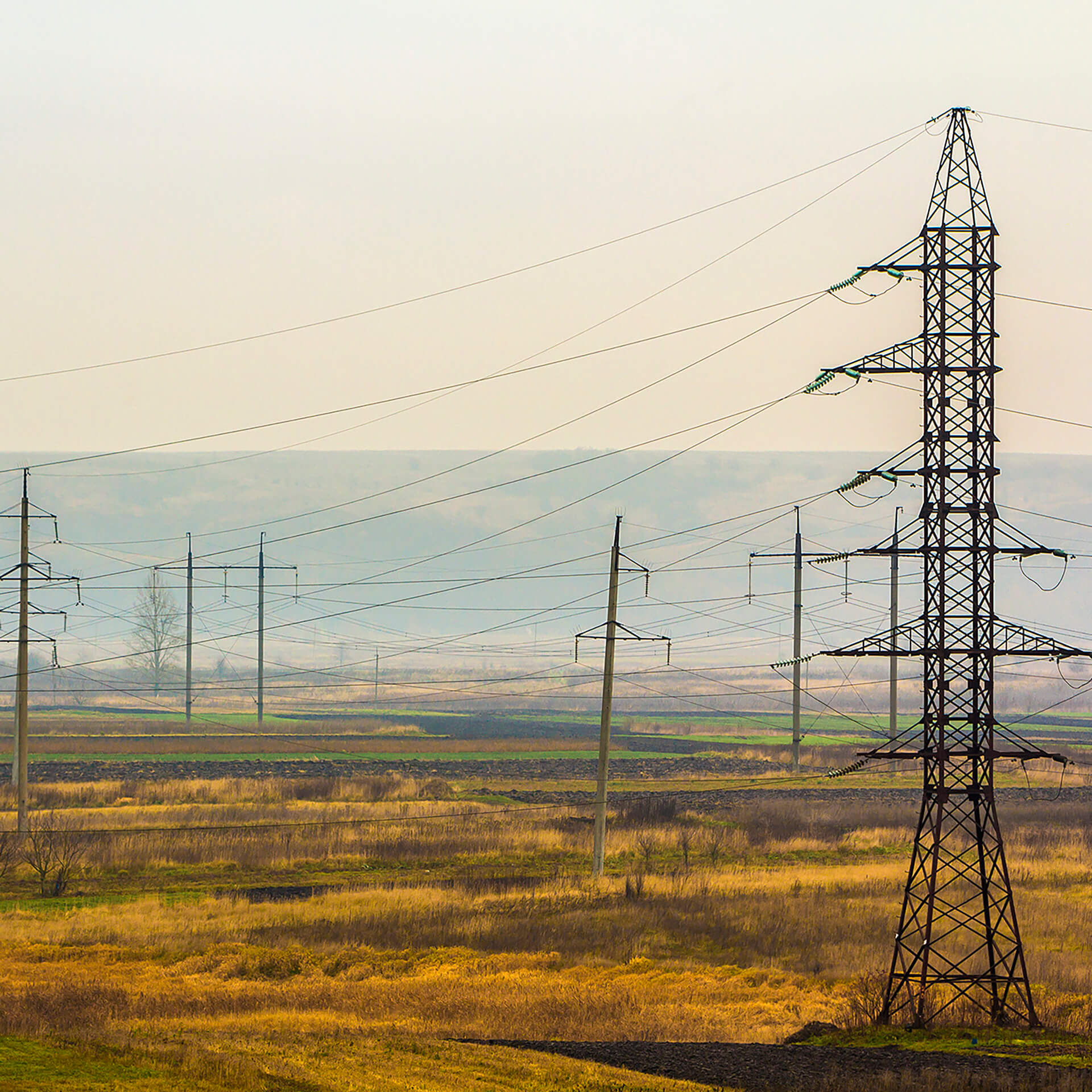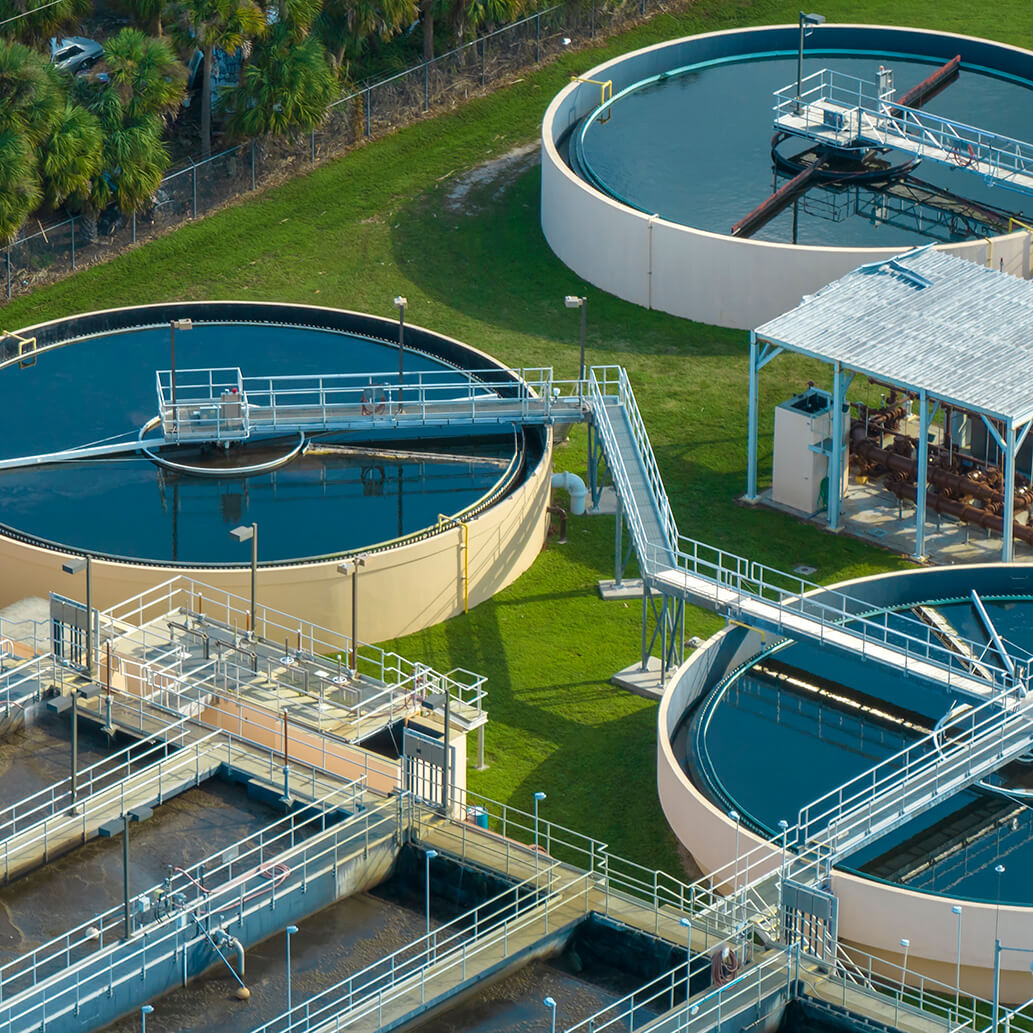Infrastructure & Energy Horizon Scanner: February 2025
27th February 2025
“Recent developments in the UK energy sector include the government’s renewed focus on nuclear power and sweeping grid connection reform to support clean energy. We cover all of this, and more, in our latest look across the infrastructure and energy horizon.”


Net Zero & Industry News
The UK government has set out new measures to accelerate net zero in its December 2024 response to the Climate Change Committee’s latest progress report.
On 13 December 2024, The Department for Energy Security and Net Zero (DESNZ) published its much-awaited CP2030 Action Plan, setting out government’s supported pathway to a clean power system by 2030.
In November and December 2024, the National Energy System Operator (NESO) consulted on three draft methodologies for applying grid connection reforms (known as TMO4+) aimed at unlocking the significant constraints on development caused by the current queue for transmission network connections. The Gate 2 Criteria Methodology sets out what projects will need to demonstrate to be allocated a confirmed connection date, connection point and queue position; the Connections Network Design Methodology sets out which projects can be designated for priority access to available capacity/earlier connection dates; and the Project Designation Methodology provides an overview of NESO’s new approach to assessing grid connection applications. On 14 February Ofgem announced that it is minded to approve the TMO4+ package of reforms.
In related news, National Grid has also published its RIIO-T3 Business Plan, detailing a framework for investment of up to £35 billion in the UK’s transmission infrastructure between April 2026 and March 2031. National Grid’s Great Grid Upgrade is also part of efforts to bring the grid into the modern era. It’s the largest overhaul of the England and Wales’ electricity grid in generations. It spans infrastructure projects across England and Wales designed to reshape the grid to boost domestic renewable power.
In Scotland, SP Energy Networks has taken a significant step towards modernising its electricity grid infrastructure by announcing 19 businesses as preferred partners for a record £5.4bn supply chain contract programme.
DESNZ has published the summary of responses to its August 2022 call for evidence on land rights and consents processes for electricity network infrastructure. A Working Group will now consider improvements to land purchase and wayleave processes.
DESNZ is consulting on proposals to modernise Capacity Market Rules, improve participation and ensure the future security of supply. In related news, DESNZ published a call for evidence and a 10-year review of the Capacity Market.
DESNZ has issued a call for evidence, open until 28 February 2025, with the aim of introducing reforms to help Ofgem adapt to the changing energy market and ensure it’s fit for purpose in the current regulatory landscape. The call for evidence is the first step in the review of Ofgem’s mandate and duties, its remit, and its role in supporting economic growth.
The Prime Minister has officially launched the UK-led Global Clean Power Alliance. The international Alliance aims to speed up the global drive for clean power by uniting developed and developing countries through ‘Missions’ to address the most critical energy transition challenges. The first is the Finance Mission, which will harness the political leadership needed to unlock private finance on a huge scale.
The Prime Minister has also confirmed the UK is to strengthen its international climate target, committing to reduce greenhouse gas emissions by 81% compared to 1990 levels by 2035.
The independent Climate Change Committee will set out recommendations on the UK’s seventh carbon budget on 26 February 2025.
The Transition Plan Taskforce (created to establish the gold plan for transition plan disclosures) has published its final report. The government is now due to consult on requirements for large public and private companies. See Walker Morris’ recent briefing on climate transition planning.
“Commercial and CSR/ESG drivers, legal and regulatory requirements, and international and UK sustainability reporting standards, are all moving climate transition planning up the corporate agenda. We’re helping businesses adopt a practical, step-by-step, approach to sustainability compliance.”

The Partnership for Carbon Accounting Financials is calling for industry input on proposals for measuring and reporting avoided and expected GHG emissions linked to financial activities – a form of ‘Scope 4’ emissions. (Scope 4 emissions are: the avoided emissions that are prevented or reduced as a result of a company’s products or services; home working emissions; or emission reductions that happen outside of a life cycle of the product or value chain, but as a result of the use of that product.) The consultation is open until 28 February 2025.
Scotland has passed a new Climate Change Bill, which scraps annual targets and the 2030 and 2040 interim targets for reducing greenhouse gas emissions, but keeps the aim of reaching net-zero by 2045. The Bill comes after the Scottish government accepted it couldn’t reach its target of reducing emissions by 75% by 2030.
Also in Scotland, the Scottish Government has published its Natural capital: Market Framework. It outlines the steps the Scottish public sector will take to: attract greater responsible private investment into high-integrity natural capital markets; ensure that private investment in natural capital benefits local communities, supports Scotland’s environmental objectives, and follows Scotland’s principles of responsible, values-led investment in natural capital; and enable Scotland’s land owners and managers to provide nature-based benefits via high-integrity natural capital markets.
The government has announced a new National Infrastructure and Service Transformation Authority (NISTA), which will combine the functions of the National Infrastructure Commission and Infrastructure and Projects Authority, bringing infrastructure strategy and delivery together, to overcome challenges and boost infrastructure development. In related news, the government has also launched the British Infrastructure Taskforce, a public and private sector collaboration, to explore different options to support the UK’s infrastructure goals.
The government has published a working paper setting out the plan for its proposed 10 Year Infrastructure Strategy. The Guardian has reported (13 February 2025) that Labour’s long-awaited industrial strategy will not now be published until June, while ministers will bring forward plans for individual sectors in a bid to show they are working to kickstart growth.
On 15 November 2024, DESNZ published 6 principles to encourage responsible participation in the voluntary carbon markets. The government will consult on the principles and their implementation in early 2025.
Current has reported that Octopus Energy has been named the largest domestic energy provider in Great Britain, a year after becoming the biggest electricity supplier.
Ofgem has consulted on the introduction of an Advanced Procurement Mechanism (APM) into the electricity transmission price control framework. The proposed APM aims to help transmission owners secure supply chain capacity ahead of confirming project requirements. It would also enable transmission owners to purchase essential equipment years in advance. Ofgem plans for the APM to come into effect in early 2025.
Shell and Equinor have announced a new partnership to extend the life of offshore oil and gas production in the UK. The partnership has promised renewed investment to provide a long-term future for the North Sea fossil fuel industry.
The government has launched a new ‘Jet Zero’ taskforce made up of airports, airlines, fuel producers and academics, tasked with supporting the delivery and production of sustainable aviation fuels.
The government has published The English Devolution White Paper which proposes significant plans to make devolution/local decision-making the default setting across a range of policy areas. Measures include plans for new local ‘strategic councils’ with the ability to guide infrastructure and development projects across areas such as housing, transport and skills.
The leader of the House of Commons has confirmed that the government’s guide to making legislation will be updated to include references to the environmental principles, so that environmental considerations will be integrated into the UK’s policy-making process. In related news, the Office for Environmental Protection is preparing to intervene in a case which could help clarify how government departments should consider environmental issues when developing policies.
Google has announced it is investing around $20 billion and working with renewable energy and investment fund partners to build gigawatts of renewable power, battery storage, and grid upgrades to power its data centres.
We reported, back in 2021, on the Milieudefensie et al v Shell Plc (or, the Royal Dutch Shell case). In November 2024, Shell ‘won’ its appeal against a court order requiring it to reduce its emissions by 45%. But the Dutch Court of Appeal’s decision is more nuanced than headlines may suggest. In fact, the appeal decision clarifies that businesses have a duty which likely goes beyond just complying with existing laws and regulations. Rather, compliance should be seen as the starting point, rather than the goal, of corporate climate responsibility. The practical advice set out in our earlier briefing is perhaps even more important today. Businesses may also want to check out our more recent advice in relation to the Corporate Sustainability Due Diligence Directive and climate transition planning.
Australasian Centre for Corporate Responsibility is suing energy company Santos for allegedly misleading statements about its net zero emissions plan. (The suit alleges Santos had no proper basis for stating in its annual report that it had a clear pathway to reach net zero by 2040, and that claims its natural gas was a “clean fuel” providing “clean energy” were misleading as they failed to disclose emissions linked to the extraction, processing and use.) The case is expected to conclude imminently and is likely to have implications across the energy sector, and for green claims generally.
Shell’s plans to increase sales of liquefied natural gas have been called into question, with a group of shareholders filing a resolution asking whether the strategy is compatible with a goal to cut carbon emissions. The resolution will come to a vote at Shell’s AGM in May 2025.
Friends of the Earth is appealing a High Court decision from October 2024 in respect of the UK’s climate adaption plan. The environmental activist claimants argue that the National Adaptation Programme falls short of what’s legally required and that groups such as older and disabled people, and those living in areas most exposed to rising global temperatures, are disproportionately affected by the impacts of extreme weather and a deficient adaptation programme. One to watch.
The Environment Agency (EA) has published its latest (December 2024) National assessment of flood and coastal erosion risk in England report. It finds that 6.3 million properties are currently at risk of flooding in England overall from one or a combination of sources from rivers, surface waters, and the sea. It predicts that figure will increase to eight million – around 1 in 4 properties within the period 2036 to 2069.
A study has reported that the engineering sector is seeing a notable decline in female representation, with women accounting for just 15.7% of the workforce in 2023, down from 16.5% in 2022, making engineering one of the least inclusive industries for women. This drop equates to over 38,000 women leaving the profession, a trend attributed to workplace barriers including inadequate PPE/workwear and insufficient maternity pay.
The UK Emissions Trading Scheme Authority is consulting on the extension of the UK emissions trading scheme beyond 31 December 2030. Submissions close on 9 April 2025. The consultation is aimed at interested stakeholders including ETS participants, wider industry, academia and NGOs.

Renewables, Green Energy and Carbon Capture, Usage and Storage (CCUS)
The government has launched the Clean Industry Bonus (CIB) as an addition to the Contracts for Difference scheme to boost offshore wind projects that choose to invest in the economic, environmental and social sustainability of offshore wind and floating offshore wind supply chains. The first CIB allocation round is planned to open for applications in 2025.
Analysis conducted by Ember, a global energy think tank, has shown that electricity generated by renewable means outperformed that produced by fossil fuels for the first time ever in the UK in 2024.
A report from RenewableUK makes recommendations for overcoming challenges relating to the grid, the market, planning, and regulation, to enable more co-location of battery storage with wind farms and green hydrogen projects.
Plans have been submitted to make a Trafford Centre site the largest EV charging site in Europe, to include 47 ultra-rapid charging spaces. Construction could begin in early 2025.
DESNZ recently published the government response to the Decarbonisation Readiness Consultation. DESNZ has followed the response by laying of a statutory instrument that will introduce the requirements into law. This will mean that new and substantially refurbished power plants will need to have credible plans to decarbonise either through CCS or hydrogen to power from 28 Feb 2026.
DESNZ has confirmed contracts have been signed for construction to begin on the UK’s first carbon capture projects in 2025.
Ofgem has approved five major new undersea energy links which will harness the vast potential of North Sea wind and help power millions of homes. The greenlit projects will provide additional channels for exporting in times of energy surplus and importing during times of more limited domestic supply. Two of the projects will also create Great Britain’s first ever Offshore Hybrid Assets (OHAs) which can directly feed energy generated by offshore wind farms into both our own and European grids.
A carbon capture innovator is utilising a modular and column-less design for new technology to save space and bolster decarbonisation credits. Carbon Clean claims its CycloneCC C1 product represents full commercialisation of a carbon capture solution, meaning sectors across the globe will be able to deploy at scale and actually make a difference to decarbonisation targets.
The UK government has announced more nuclear power plants will be approved with reforms to streamline planning regulations to facilitate nuclear development. This will be achieved by including small modular reactors (SMRs) in planning rules for the first time, scrapping the set list of 8 sites, removing the expiry date on nuclear planning rules and setting up a nuclear task force.
EDF has confirmed extensions to the generating life of 4 UK power stations.
Also in relation to nuclear, the International Energy Agency has reported that global nuclear energy is to achieve record levels of generation in 2025. It says innovations such as SMRs are “changing the nuclear technology landscape”, but more private financing will be needed.
“The government’s renewed focus on nuclear power means that this will be an active market sector in the coming months and years. Investors and funders will be looking for innovation, flexibility and market expertise. “

The University of Manchester has published ‘On Hydrogen’ December 2024, which provides expert analysis, evidence and policy recommendations to tackle the UK’s key hydrogen policy challenges.
The Mining Remediation Authority has launched a new research facility in in the north east aimed at advancing the use of mine water heat technology.

Waste & Resources
On 31 December 2024, the EA published its packing producer responsibility monitoring plan for 2025. The EA has also launched a consultation, open until 5 March 2025, on how it intends to apply new civil sanctions under the Producer Responsibility Obligations (Packaging and Packaging Waste) Regulations 2024.
The EA is consulting on proposals to introduce new regulatory charges for specific waste activities, as well as updating existing charging regimes, from April 2025.
The Department for Environment, Food & Rural Affairs (DEFRA) has published its technical report, Persistent Organic Pollutants Destruction Efficiency in UK Energy from Waste. The report finds that energy-from-waste facilities provide a “very high level of destruction efficiency” of Persistent Organic Pollutants, but it’s inconclusive as to their efficiency at destroying perfluoroalkyl and polyfluoroalkyl substances (PFAS)-containing waste.
Ofwat will look at how the failure of water companies to deliver adequate wastewater treatment infrastructure can act as a “potential constraint to growth”, as part of its responsibilities to implement the new growth duty.
The government has announced new rules on water companies’ payment of compensation for poor drinking water.
The Office for Environmental Protection has found that DEFRA, Ofwat and the EA breached environmental law by being too lenient on water companies committing sewage spillage.
For the first time, Ofwat will use new enforcement powers to fine Thames Water £18m for breaching rules linking dividend payments to environmental consideration/performance. Ofwat has said it will claw back the value of £131m in unjustified dividend payments by using its price control powers to protect customers from these penalties.
Almost concurrently, Ofwat has conceded that water companies can claw back £104bn from customer bills over the next five years in its final price review decision. As a result, customer bills will increase by a record average of £31 per year before inflation between now and 2030.
The EA and Natural England have secured the largest commitment from water companies since privatisation to clean up the environment and invest in new infrastructure. The Water Industry National Environment Programme sets out actions water companies must take over the next five years.
The government has announced a £2.65bn investment package aimed at bolstering flood defences across the country in response to increased flooding risks linked to climate change. Walker Morris has written previously about water stress and related environmental and commercial concerns. See our briefing for practical advice.
The EA has published proposals for the creation of a new ‘waste crime levy’, new registration and compliance charges for waste exemptions, increases in existing waste charges, and the creation of new fees intended to assist the agency in recovering its full costs.

Construction/Development
The government is consulting on development of a Land Use Framework to support decision making on guaranteeing long-term food security, supporting development, achieving targets on nature and climate, and supporting economic growth. The consultation is open until 25 April 2025.
The Ministry for Housing, Communities and Local Government (MHCLG) and DESNZ are consulting, until 26 February 2025, on reforms to the Energy Performance of Buildings regime in England and Wales.
The Scottish Government has published the response to its 2023 Energy Performance Certificate (EPC) reform consultation, confirming plans to introduce revised EPC regulations in Parliament in 2025.
The government has published a revised version of the National Planning Policy Framework (NPPF). The new version is intended to assist the government’s ambition to facilitate the building of 1.5 million new homes during the current parliament, by changing the approach that local authorities must take in considering certain residential planning issues. These changes include reintroducing Mandatory Housing Targets and the obligation to demonstrate a 5-year housing supply pipeline. There are also changes to how some green belt land is categorised (the new “grey belt”) and the introduction of new golden rules which will in some cases permit development in the green belt.
The government has also published its Planning Reform Working Paper: Streamlining Infrastructure Planning; shortly followed by a press release on plans for removing blockers to the development of nationally significant infrastructure projects (NSIPs).
Infrastructure developers will no longer need to undertake site-by-site environmental mitigation measures before planning permission is granted, but instead will contribute to a new Nature Restoration Fund to fund larger strategic interventions to protect natural ecosystems. The Fund is intended to accelerate infrastructure projects and enable developers to meet their environmental obligations faster.
Speaking at a Future Energy Wales conference, the Welsh Cabinet Secretary for Economy, Energy and Planning outlined plans to: allow Planning and Environment Decisions Wales to take decisions on renewable energy projects up to 50MW, reducing the end-to-end decision time by at least 12 weeks; improve the capacity and resilience of planning services by starting to address the shortage of planners at both local and national levels; and enhance government planning resource to speed up consideration of Developments of National Significance.
A minister has confirmed in a parliamentary debate that the government will consult on applying the biodiversity net gain (BNG) requirement to nationally significant infrastructure projects.
Walker Morris has reported previously the High Court’s and Court of Appeal’s findings, in C G Fry v Secretary of State for Levelling Up, that government rules aiming to mitigate the impact of nutrient pollution on protected waterways apply to the final discharge of planning conditions as well as earlier consenting stages. The Supreme Court has now granted permission for C G Fry to appeal. The timescale for the Supreme Court hearing is yet to be confirmed.
The government has announced plans to make “common sense changes” to the Habitats Regulations and the Wildlife and Countryside Act to support the commitment to build 1.5 million homes and advance major infrastructure projects.
Northumbria University has announced new 3D construction printing technology that can print concrete structures faster, cheaper and more sustainably than conventional methods. 3D concrete printing boasts time, energy, resource and money-saving credentials. Anecdotal evidence suggests it can enable up to 60% reduction of construction waste, 70% reduction of production time, and 80% reduction of labour costs, compared to hands-on construction projects.
Also in relation to 3D printing in construction, Scientists at Nanyang Technological University, Singapore have developed a 3D concrete printing method that captures carbon, demonstrating a new pathway to reduce the environmental impact of the construction industry. The innovative method aims to significantly reduce the carbon footprint of cement through lower material usage, reduced construction time, and labour requirements.
The Department for Transport has published new research on the effect of uncertainties in the delivery, scope and timing of major transport infrastructure on land development, which can cause friction within the land development market.
A study from the Australian Catholic University study has successfully used AI algorithms in conjunction with neural networks to detect defects in bridges in real time.









“Grid connection reform – a key tenet of the UK government’s net zero and growth ambitions – is evolving rapidly. In this article, we provide an essential update on the latest grid connection reform proposals, and likely impacts for energy and infrastructure developers and funders.”
Shane Toal, Partner, Infrastructure & Energy